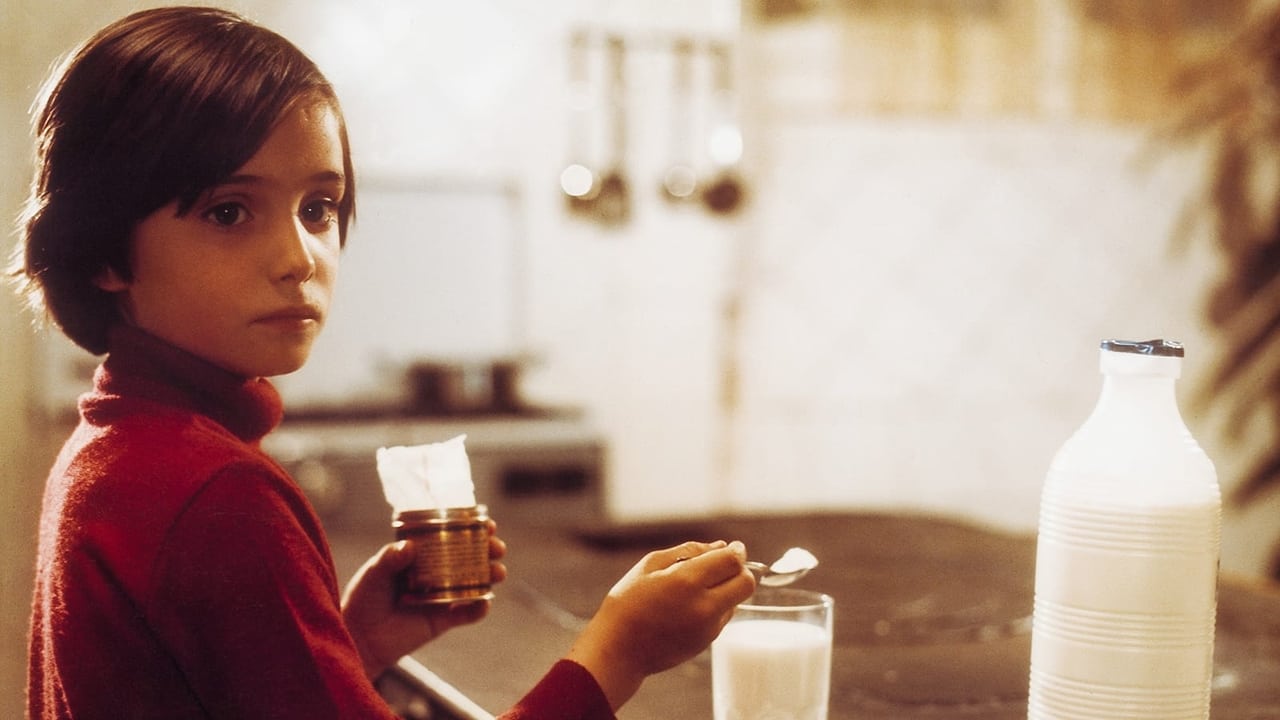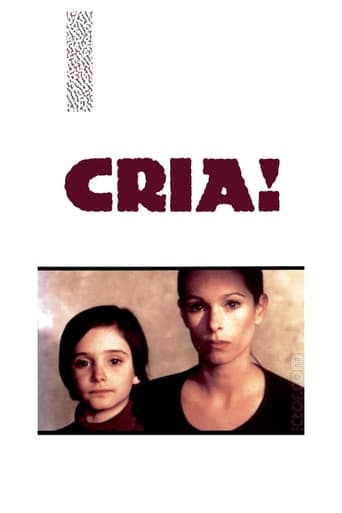Hadrina
The movie's neither hopeful in contrived ways, nor hopeless in different contrived ways. Somehow it manages to be wonderful
Bea Swanson
This film is so real. It treats its characters with so much care and sensitivity.
Neive Bellamy
Excellent and certainly provocative... If nothing else, the film is a real conversation starter.
MartinHafer
I see that this film has an IMDb score of 8.0 and is one of the much respected released from The Criterion Collection--so I assumed it must have been a really worthwhile film. However, after seeing it, I felt strangely ambivalent and have no idea what others see in this strange and unsatisfying movie.The film begins with a father dying while in the act with the wife of one of his friends. However, his middle child, Ana, thinks she killed him--after all, she gave him poison! Throughout the film, this melancholy and rather psychotic kid behaves strangely--like she could use about a dozen years in therapy. Some of this is because she's grieving her mother's death (she died a few years before the father) and part of it is that she's just freaking weird. For example, when Grandma complains that she doesn't enjoy life any more, the child suggests that she give her poison!! And, to test it out, Ana poisons her guinea pig. Later, when she's angry and displaces the anger on her Aunt, Ana then tries to poison her but it has no effect at all. And, soon after, the movie ends.The acting is pretty good and I know it's not easy to get natural performances out of kids. I can respect that. As for the plot, however, it left me really, really cold and confused. What was enjoyable or insightful about this film?! It just seemed weird and a bit stupid.By the way, why were there always chicken feet in fridge? Was there some symbolism about this in Spain (where the film was made)? Did I miss something?
Framescourer
A quietly brilliant film, Cría cuervos is a touching and funny but profoundly serious meditation on the end of the Franco era. Clearly there is a wealth of material in the basic metaphor of children growing up around dysfunctional and disingenuous parents. Carlos Saura goes out of his way to make a more ambivalent film though. The children are not on the cup of adolescence but buried in the depth of childhood - the only conventional passage is that of the denouement which shows the girls on the way back to school. Within the film there is all manner of quietly teased-out misdirection and surrealism: the constant overlay of Ana the child and woman, and the same with her mother, dead and alive; a child's plain-faced obsession with death, which, simultaneously, she fails to really understand; a plate of chicken's claws, ominously preserved in a fridge.So there's the meditative oddity of Jodorowsky but also the child's eye perspective of Bergman (Fanny and Alexander was yet to be made though). I think the most affecting thing may be the mono-pace of the camera and editing, which never rushes to artificially stimulate the drama. That's left to the story as seen and told by Ana. Ana Torrent, in this role, is fairly miraculous, composed but engaged in almost every frame, usually in close-up. Geraldine Chaplin is also wonderful as the mother/older Ana, maintaining the opaque gaze of a Spanish woman at the heart of the injustices of Franco's warped society. An economical, uncomplicated, poetic film of lasting power. 8/10
Galina
It is hard to be a child no matter what country or times you live in. It is unbearably painful for a child to lose their most beloved and close person in the world, to miss them enormously, to try to come to terms with their loss, to make sense of it. It is hard to live during the time of historical changes in your country even if you live during the time of peace when the devastating wars are over and your family belongs to the privileged ones. Is childhood really a happiest, most innocent, brightest time in life of a person or is it confusing, scary, sad? Or both? Is a child who honestly wishes her caregiver dead, a little psycho or is she innocent and the wish is her way to cope with the reality that her beloved mother would never again smile at her, kiss her and play piano for her and nobody would ever substitute her however hard they try? I kept asking all these questions while watching the truly beautiful, dreamlike, absolutely non-sentimental, serious yet optimistic and darkly funny film Cria Cuervos aka Raise Ravens or Secret of Ana written/directed and produced by one of the Spanish most celebrated filmmakers, the favorite director of Luis Bunuel, Carlos Saura. Nine years old Ana Torrent, a delicate little girl with the huge sad dark eyes that look directly in your soul and see something way beyond this world, is IMO one of the most memorable and touching children actors I recall. Continuing with the theme of her fascinating and unforgettable debut at 1973 Spirit of the Beehive, she gives in Cria Cuervos performance of the life time as a little girl who creates the fantasy world where death has no power over her love for her dearly departed mother. Cria Cuervos is an amazing must see movie. Very much can and has been said about its complexity and symbolism, and analogies with the real changes in the political and social life in Spain at the time. I just want to add that it is a perfect sublime movie made by a very talented and intelligent director about complexity of the times of childhood that could be happy yet very sad.
Natashenka_S
I took this film in a video library and watched it 3 times. It is one of the most powerful films I have ever seen. The techniques in the film are very modest but it's amazing what the director does with them. I liked very much this sad and quiet girl. The scene where her pet dies and she buries him is so solemn and heart-breaking. I felt sad about the old Grandmother who watches the old pictures in sadness. I also liked Geraldine Chaplin, she is very good in this role, her intimate bond with the daughter, and how she looks at Ana with sadness when the girl doesn't notice it. The scene where the girl imagines her mom combing her hair is mesmerizing. Maria's pain is very palpable.By the way I found some interesting information about this film. Geraldine Chaplin was dubbed in the episodes where she plays the grown Ana. It was done because the actress has a slight British accent which is not annoying or too prominent (for me at least), but the point is that she plays a grown girl, and it would be rather weird if a grown person acquires an accent in one's mother tongue if this accent did not exist during the childhood. So it was an intelligent consideration of the director.I recommend this movie very much.

